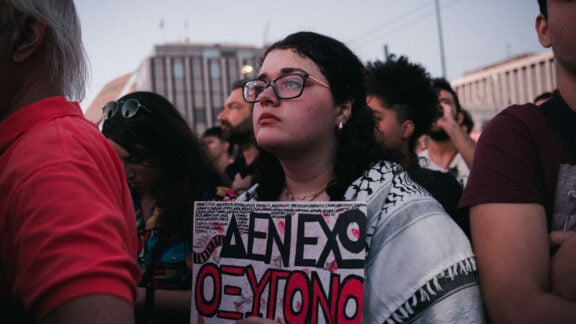You could hate football. You could really, strongly, passionately dislike it. You could be one of those people that can’t even admire a mesmerising, dribbling Leo Messi goal. It’s just a guy kicking a ball. Sure, there’s some skill involved, but it’s not like he’s discovering the cure to cancer now, is he?
Even if you belong in this category, however, it’s becoming increasingly difficult to ignore the footballing thunderstorm coming from China, the roars and rumble of which can be heard around the world. When the recent transfer of Carlos Tevez was finalised, taking the 32-year-old Argentinean striker from Boca Juniors to Shanghai Shenhua, his weekly wage didn’t just make the news, it crashed through front pages and television screens. Six hundred and fifteen thousand British pounds per week. That’s. Six hundred. And fifteen. Thousand. British pounds. PER WEEK. You don’t need to be a football fan to realise that is an incredible amount of cash. To put that in a financial context relevant to the sport, Tevez now earns enough money to get him to a Cristiano Ronaldo and Leo Messi wage bracket.
The Chinese aren’t joking around and they don’t intend to allow their Chinese Super League to take its time in establishing itself as one of the prime movers on football’s grand stage. They might be behind the big leagues of the world in terms of fans, flair, goals, football quality and shop window magnetism, but what they lack in other departments they make up for in blunt financial force.
President Xi Jinping, an avid football fan himself, has made no secret of his plans for establishing China as a de facto football superpower, and with the CSP quickly laying out a bulging conga line of big money transfers, flashing the cash certainly doesn’t seem to be going out of style for the Chinese as a way of aggressively pushing through to the front of the line. In the 16/17 season alone, teams from the CSP have managed to attract some top-quality names, including Brazilian playmaker Oscar (£51 million from Chelsea), Hulk (£47.3 million from Zenit), Axel Witsel (£17 million from Zenit), Graziano Pelle (£13 million from Southampton) and of course, the league’s top earner himself, Carlos Tevez.
The aforementioned names join an already impressive looking list of footballing personnel that have entered the uncharted waters of the Chinese Super League in search of untold riches: Alex Texeira, Jackson Martinez, Ramires, Gervinho, Paulinho, Demba Ba, Freddy Guarin, Asamoah Gyan, Burak Yilmaz, Renato Augusto, Vagner Love, Stephane Mbia, Papiss Demba Cisse, Ezequiel Lavezzi, Alberto Gilardino. These are all fully recognisable, front-line players that have all starred in some of the biggest European leagues.
But what does this mean for European football? Should the top leagues be worried about the rich kid muscling in on their turf? In a word − absolutely. The CSP doesn’t seem to be a flash in the pan. While there are understandable fears concerning the financial output needed to continue to attract top talent to China and whether that level of investment can be maintained, there is little to suggest that the CSP express is running out of steam. At least for now. What is truly troubling for the leagues in Spain, England, Italy, France and Germany is that the offers torpedoing their way into Europe from China aren’t just solid. They’re eclipsing whatever the European leagues can counter offer. Even a championship-chasing side like Chelsea can’t resist a 50 million pound offer when it comes in (hello there Oscar) and Axel Witsel, a long-time Juventus target and a player in the prime years of his career, didn’t think twice about rejecting the Italian champions and choosing the big money offer from Tianjin Quanjian, which, according to the Belgian international, was “a crucial offer for my family that I couldn’t turn down”.
Some will point to the fact that no young, ambitious footballer would chose the CSP over say, the Champions League, because they were simply being offered a healthy increase in their paycheck, but I for one would beg to differ. The offers raining in from China don’t just represent a ‘healthy’ increase to an already hefty wage packet that a player in a top league pockets. Carlos Tevez signed a contract with Shanghai Shenhua that will see him make twenty times more than he was making with Boca Juniors. In the latest flaming-comet-of-an-offer to land in Europe, Shanghai SPG have tabled a £150 million offer for Borussia Dortmund’s star striker (and of the most wanted players in the world currently) Pierre-Emerick Aubameyang, and have reportedly thrown the player an offer of £788,000 a week. These are astronomical offers. Some would say obscene, and you wouldn’t be able to easily argue that they don’t have a point. But nevertheless, they are very real and that’s what’s important.
We can only speculate as to what the coming summer holds, with rumoUrs circulating of an £800,000 a week offer making its way to Wayne Rooney and an all-out transfer assault on Europe’s top leagues.
While it is unlikely that we will see a mass exodus of Champions League stars towards the CSP in a single transfer window any time soon, the meteoric rise of the Chinese league represents a major shift in power on the footballing map. The Chinese see football as the best way to majorly reinforce and invigorate their country’s image. With the world’s most popular sport on their side, they stand a pretty good chance of achieving their lofty goals.
Especially when money, clearly, is not an issue.









